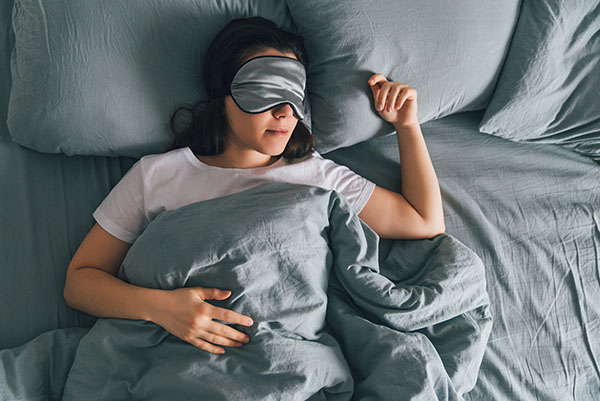What is sleep apnea?
 The importance of sleep is widely known, but getting enough quality sleep can be difficult for some—especially those who have sleep apnea. Characterized by loud snoring and choking, gasping sounds during sleep, sleep apnea is a chronic disorder that, left untreated, can lead to other medical conditions—mainly heart disease—or even death. That’s why it’s important to recognize the symptoms and seek treatment as soon as possible. You can live with sleep apnea for many years, but the wear and tear it will place on your body will significantly impact your quality of life—not to mention your bed partner’s.
The importance of sleep is widely known, but getting enough quality sleep can be difficult for some—especially those who have sleep apnea. Characterized by loud snoring and choking, gasping sounds during sleep, sleep apnea is a chronic disorder that, left untreated, can lead to other medical conditions—mainly heart disease—or even death. That’s why it’s important to recognize the symptoms and seek treatment as soon as possible. You can live with sleep apnea for many years, but the wear and tear it will place on your body will significantly impact your quality of life—not to mention your bed partner’s.
Practice good sleep hygiene
Pay as much attention to your sleep habits as you do your personal ones. Good sleep hygiene should follow a predictable pattern. “Go to bed and wake up at the same time every day,” says Ajay Pillai, MD, a Trinity Health Mid-Atlantic board-certified sleep physician. “Create and follow a ritual before turning in, such as showering, brushing your teeth and listening to some soft music. Don’t overstimulate yourself, watch TV or read an electronic device. The blue light will keep you awake. Aim for seven to nine hours of sleep per night. Try to maintain your schedule on the weekends too if you can.”
Maintain a healthy diet and get regular exercise
Getting regular exercise can help boost your respiratory and circulatory systems. Just try to get your workout in earlier in the day, as some people find it hard to fall asleep if they exercise too close to bedtime. Sleep apnea is common in those who are overweight, so adding exercise and healthy eating will also help you shed extra pounds.
Ask your doctor about CPAP
Depending on your situation, a Continuous Positive Airway Pressure (CPAP) machine could be the right treatment. A CPAP device fits over your nose and uses forced air to keep the airway open, allowing you to breathe normally and regularly during sleep. “Patients using CPAP machines can expect to see longer and deeper sleep, less risk of harmful outcomes and an overall improvement in their quality of life,” Dr. Pillai says.
If your snoring is disrupting your sleep or your partner’s. or if you often feel tired during the day, reach out to your primary care provider. Don’t have one? Schedule an online appointment with a provider.
